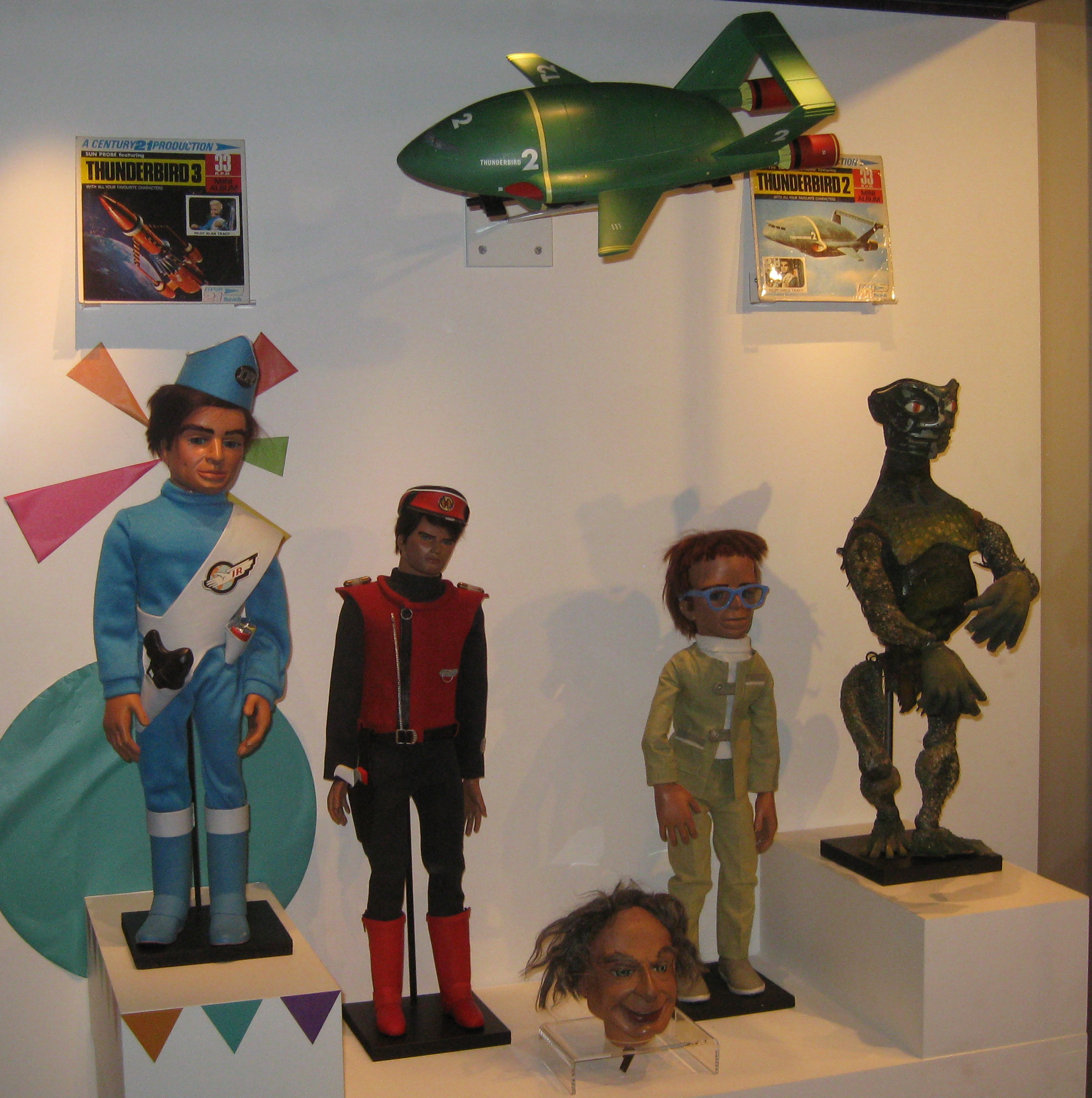|
Walton And O'Rourke
Walton and O'Rourke (Paul E. Walton and Michael O'Rourke) were a famous team of cabaret puppeteers who founded the Olvera Street Puppet Theatre in Hollywood in 1935. Within the puppeteering community Walton and O'Rourke were considered one of the finest teams of puppet showmen the U.S. ever produced. Some of their marionettes used as many as seven strings to control a single marionette arm. Walton and O'Rourke appeared on Broadway in the 1941 Olsen and Johnson review Sons o' Fun. A brief filmed record of their work can be seen in the 1936 Walter Lantz Oswald the Lucky Rabbit Oswald the Lucky Rabbit (also known as Oswald the Rabbit, Oswald Rabbit, and Ozzie) is an animated series, animated cartoon character created in 1927 by Walt Disney and Ub Iwerks for Universal Pictures. He starred in several animated short film ... cartoon, "Puppet Show". The first and last sections present a live-action marionette show, where some very subtle character movements are demonstrated. For the ... [...More Info...] [...Related Items...] OR: [Wikipedia] [Google] [Baidu] |
Hollywood, Los Angeles
Hollywood, sometimes informally called Tinseltown, is a List of districts and neighborhoods in Los Angeles, neighborhood and district in the Central Los Angeles, central region of Los Angeles County, California, within the city of Los Angeles. Its name has become synonymous with the Cinema of the United States, U.S. film industry and the people associated with it. Many notable film studios such as Sony Pictures, Walt Disney Studios (division), Walt Disney Studios, Paramount Pictures, Warner Bros., and Universal Pictures are located in or near Hollywood. Hollywood was incorporated as a municipality in 1903. The North Hollywood, Los Angeles, northern and East Hollywood, Los Angeles, eastern parts of the neighborhood were Merger (politics), consolidated with the City of Los Angeles in 1910. Soon thereafter, the prominent film industry migrated to the area. History Initial development H. J. Whitley, a real estate developer, arranged to buy the E.C. Hurd ranch. Whitley shared ... [...More Info...] [...Related Items...] OR: [Wikipedia] [Google] [Baidu] |
Marionette
A marionette ( ; ) is a puppet controlled from above using wires or strings depending on regional variations. A marionette's puppeteer is called a marionettist. Marionettes are operated with the puppeteer hidden or revealed to an audience by using a vertical or horizontal control bar in different forms of theatres or entertainment venues. They have also been used in films and on television. The attachment of the strings varies according to its character or purpose. Etymology In French, means 'little Mary'. During the Middle Ages, string puppets were often used in France to depict biblical events, with the Virgin Mary being a popular character, hence the name. In France, the word can refer to any kind of puppet, but elsewhere it typically refers only to string puppets. History Antiquity Puppetry is an ancient form of performance. Some historians claim that they predate actors in theatre. There is evidence that they were used in Egypt as early as 2000 BC when string-opera ... [...More Info...] [...Related Items...] OR: [Wikipedia] [Google] [Baidu] |
Broadway Theatre
Broadway theatre,Although ''theater'' is generally the spelling for this common noun in the United States (see American and British English spelling differences#-re, -er, American and British English spelling differences), many of the List of Broadway theaters, extant or closed Broadway venues use or used the spelling ''Theatre'' as the proper noun in their names. Many performers and trade groups for live dramatic presentations also use the spelling ''theatre''. or Broadway, is a theatre genre that consists of the theatrical performances presented in 41 professional Theater (structure), theaters, each with 500 or more seats, in the Theater District, Manhattan, Theater District and Lincoln Center along Broadway (Manhattan), Broadway, in Midtown Manhattan, New York City. Broadway and London's West End theatre, West End together represent the highest commercial level of live theater in the English-speaking world. While the Broadway (Manhattan), Broadway thoroughfare is eponymous ... [...More Info...] [...Related Items...] OR: [Wikipedia] [Google] [Baidu] |
Oswald The Lucky Rabbit
Oswald the Lucky Rabbit (also known as Oswald the Rabbit, Oswald Rabbit, and Ozzie) is an animated series, animated cartoon character created in 1927 by Walt Disney and Ub Iwerks for Universal Pictures. He starred in several animated short films released to theaters from 1927 to 1938. Twenty-seven animated Oswald shorts were produced at the Walt Disney Animation Studios, Walt Disney Studio. After Universal took control of Oswald's character in 1928, Disney created Mickey Mouse as a replacement to Oswald. In 2003, Buena Vista Games pitched a concept for an Oswald-themed video game to then-Disney President and future-CEO Bob Iger, who became committed to acquiring the rights to Oswald. In 2006, The Walt Disney Company acquired the trademark of Oswald (with NBCUniversal effectively trading Oswald for the services of Al Michaels as play-by-play announcer on ''NBC Sunday Night Football''). Oswald returned in Disney's 2010 video game, ''Epic Mickey''. The game's metafiction plot para ... [...More Info...] [...Related Items...] OR: [Wikipedia] [Google] [Baidu] |
Lili (1953 Film)
''Lili'' is a 1953 American film released by MGM. It stars Leslie Caron as a touchingly naïve French girl whose emotional relationship with a carnival puppeteer is conducted through the medium of four puppets. The film won the Academy Award for Best Original Score, and was also entered in the 1953 Cannes Film Festival. It was later adapted for the stage under the title ''Carnival!'' (1961). ''Lili's'' screenplay, written by Helen Deutsch, was based on a short story and treatment titled "The Seven Souls of Clement O'Reilly" written by Paul Gallico, which in turn was based upon "The Man Who Hated People," a short story by Gallico that appeared in the October 28, 1950 issue of ''The Saturday Evening Post''. After the film's success, Gallico expanded his story into a 1954 novella entitled ''Love of Seven Dolls''. Plot Naive country girl Lili arrives in a provincial town in hopes of locating an old friend of her late father, only to find that he has died. A local shopkeeper offers ... [...More Info...] [...Related Items...] OR: [Wikipedia] [Google] [Baidu] |



